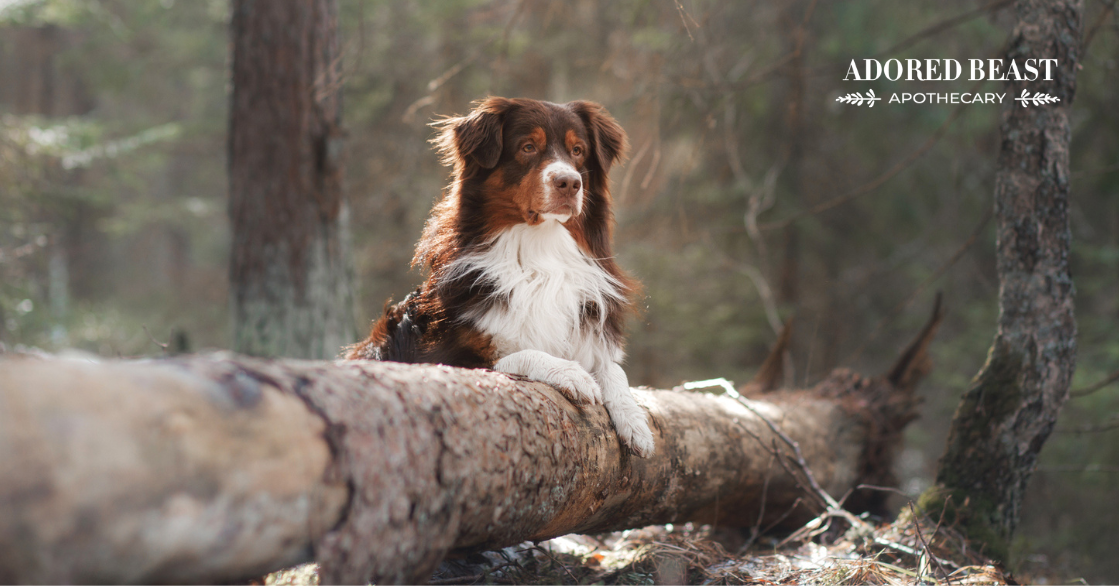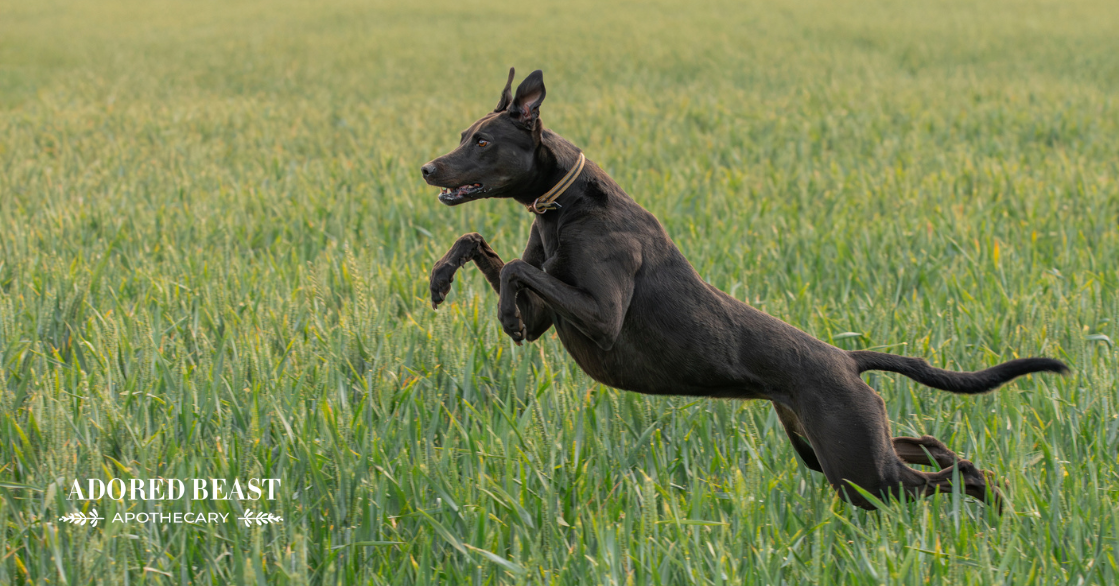The gallbladder is an often-overlooked organ in your dog’s digestive system, but it plays a crucial role in maintaining overall health. When issues arise, they can lead to discomfort and more serious health complications. Understanding the function of the gallbladder, recognizing potential issues, and knowing how to support gallbladder health naturally can help keep your dog happy and healthy.
While gallbladder problems are not as common as kidney or liver issues, they can still affect dogs of all breeds and ages. Small breeds such as Shetland Sheepdogs and Cocker Spaniels are more prone to gallbladder mucoceles. Older dogs and those with underlying liver disease, obesity, or endocrine disorders (such as hypothyroidism) may also be at higher risk.
So, what do you need to know? Let’s dig in.
What is the Gallbladder and What Does it Do?
The gallbladder is a small, sac-like organ located near the liver. Together with the liver and pancreas (the other organs of the biliary system), the gallbladder is crucial for digestion and removing waste from the body. It stores bile produced by the liver, which neutralizes stomach acid and helps with the proper flow of bile. It releases this bile it into the small intestine to help digest fats and absorb fat-soluble vitamins. This process aids in the breakdown and absorption of dietary fats,
If the gallbladder malfunctions, bile can back up, leading to gallbladder disease or rupture. This bile buildup can lead to indigestion, acid reflux, and ulcers.
Several factors can contribute to gallbladder issues in dogs, including:
- Poor diet (high-fat or highly processed foods)
- Liver disease
- Infections
- Hormonal imbalances (e.g., hypothyroidism, Cushing’s disease)
- Genetics (certain breeds are predisposed)
- Obesity
- Inflammatory conditions affecting the digestive system
Types of Gallbladder Issues in Dogs
Dogs can experience several gallbladder problems, some of which can be serious. Here are the most common issues:
Gallstones (Cholelithiasis)
Gallstones are solid deposits that form in the gallbladder when bile hardens into solid “stones”. They are similar to gallstones in humans, just with a different composition. These stones can develop from excessive cholesterol, bilirubin, or bile salts, and may be influenced by diet, genetics, or underlying health conditions.
Often they don’t cause problems, and you won’t see any symptoms. However, they can block the flow of bile, leading to pain and digestive issues. If they are causing clinical signs or blocking the bile ducts, it’s a good idea to speak to your vet. Surgical removal may be recommended.
Gallbladder Mucocele
Gallbladder Mucocele (often called sludge) in dogs is a condition where bile in the gallbladder thickens into a gel-like sludge, forming an obstructive mass. A buildup of this sludge prevents the normal flow of bile, which can lead to inflammation, infection, and, in severe cases, gallbladder rupture—a life-threatening emergency.
While the exact cause isn’t always clear, several factors can contribute, including hormonal imbalances (such as hypothyroidism or Cushing’s disease), liver disease, genetics, poor diet, or inflammatory conditions. Symptoms include vomiting, lethargy, loss of appetite, abdominal pain, fever, and jaundice (yellowing of the skin, eyes, or gums).
Cholecystitis (Gallbladder Inflammation)
Cholecystitis is an infection or inflammation of the gallbladder. It’s often caused by bacterial infections or underlying liver disease. Symptoms of cholecystitis include anorexia, weight loss, vomiting, diarrhea, abdominal pain, lethargy, fever, icterus, increased urination, and increased drinking. Additionally, dogs will often have increased levels of liver enzymes (ALP and GGT).
Biliary Obstruction
Biliary obstructions can be caused by gallstones, mucoceles, tumors, or infections. Pancreatitis can cause inflammation and swelling that blocks the bile duct, while gallstones and tumors can physically obstruct the flow of bile from the liver to the intestines. When bile flow is blocked, digestion is impaired, and toxins can build up in the body. Symptoms of an obstruction include sudden vomiting, abdominal pain, loss of appetite, and sometimes fever.
Natural Ways to Support Gallbladder Health
Maintaining a healthy gallbladder can help prevent many of these issues. Here are some natural ways to support your dog’s gallbladder health:
- Feed a High-Quality, Balanced Diet: A diet rich in whole foods, lean proteins like turkey, and fiber can promote healthy digestion and prevent gallbladder sludge. Avoid processed foods, excessive fats, and artificial additives.
- Incorporate Digestive Enzymes and Probiotics: Digestive enzymes can help break down fats efficiently, reducing stress on the gallbladder. Probiotics support gut health and prevent inflammation. We recommend Healthy Gut!
- Use Liver-Supporting Herbs: Herbs such as milk thistle, barberry, and dandelion root are known for their liver-protective properties and can help maintain bile flow. Choose Liver Tonic for this.
- Ensure Proper Hydration: Water helps flush toxins from the system and keeps bile from becoming too thick. Always provide fresh water for your dog.
- Add in Antioxidants: Antioxidants are important for gallbladder health because they help neutralize free radicals, which can damage cells and contribute to inflammation, potentially leading to gallstones and other gallbladder problems. Choose antioxidant-rich foods like berries and dark, leafy greens and consider antioxidant-rich supplements like phytoplankton or chaga mushrooms.
- Encourage Regular Exercise: Physical activity helps maintain a healthy weight and improves overall digestion, reducing the risk of gallbladder issues.
- Give Omega-3 Fatty Acids: Omega-3s can reduce inflammation and support liver function, benefiting gallbladder health. Our Potent-Sea Omega-3 is a sustainable source of potent omegas.
- Reduce Toxin Exposure: Avoiding unnecessary chemicals, medications, and processed foods can help maintain a healthy liver and gallbladder.
Gallbladder issues in dogs can be serious, but with early detection and proper care, they can often be managed or even prevented. By feeding a nutritious diet, encouraging regular exercise, and using natural supplements, you can help support your dog’s gallbladder health. If you notice any concerning symptoms, always consult your veterinarian to ensure your dog gets the best care possible.












